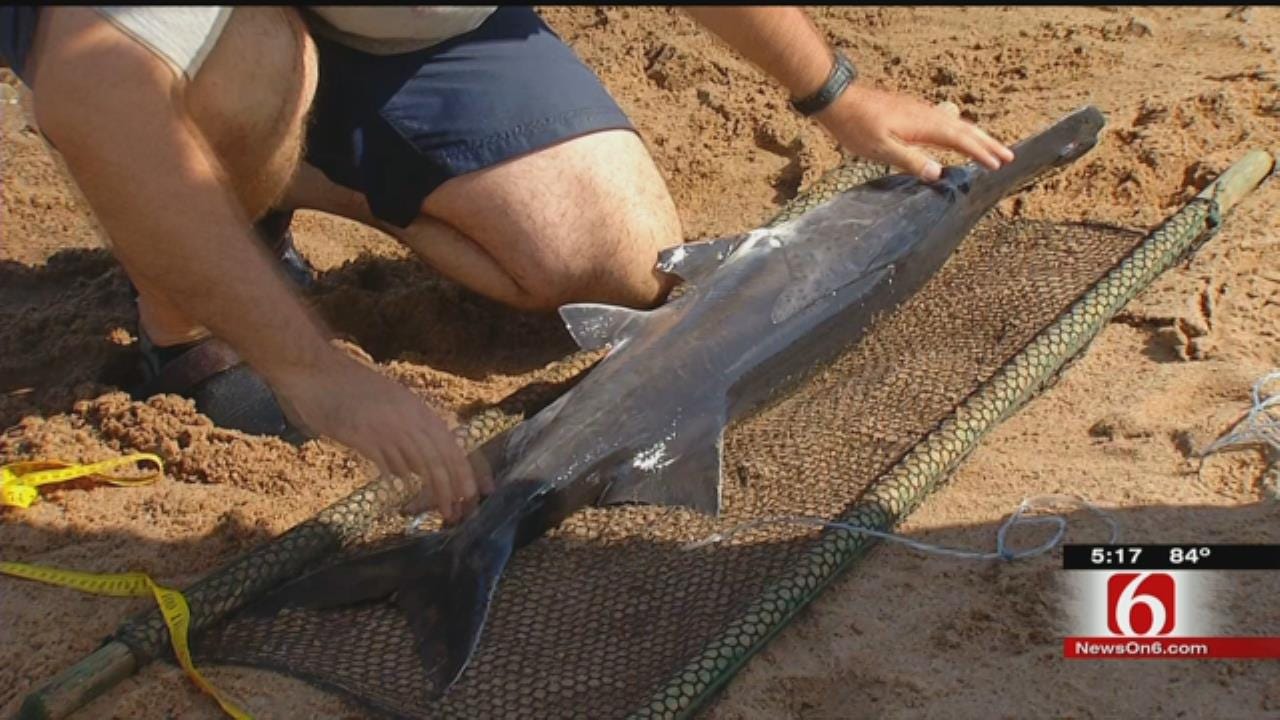Biologists Study Ancient Fish Stacked In Metro Stretch Of Arkansas River
Biologists are getting a rare chance to study hundreds of an ancient species of fish stuck in the Arkansas River.Monday, September 21st 2015, 6:33 pm
Biologists are getting a rare chance to study hundreds of an ancient species of fish stuck in the Arkansas River.
After an unusual spring and summer of heavy rain, paddlefish are stuck in the Arkansas River in Tulsa, and biologists are taking advantage of the unusual situation.
The water is a little higher, and it's moving a little faster than biologists expected, but they've found a way to make it work, and they've caught the 40 paddlefish they needed to do their testing.
Biologist Jason Schooley said, “They've been around for 65 million years. They're dinosaur-aged fish.”
On the banks of the Arkansas River, with the Tulsa skyline in the distance, a prehistoric research project of sorts is underway.
“This particular stretch of river was missing from our study. We didn't have paddlefish samples from here,” Schooley explained.
To many, it's a surprise that paddlefish are native to Oklahoma; but the odd-looking, ancient fish - also known as spoonbill - are common in the northeastern part of the state.
Due to low water levels and dams, Schooley said this many paddlefish haven't been this close to the city in decades.
9/21/2015 Related Story: Summer Rains Leave Tulsa Paddlefish In Uncharted Water
“I'm happy to see that they're in metro Tulsa, because they're supposed to be here,” he said.
Schooley said a lot of rain and high water gave fish the chance to make longer than normal runs up river this year. But since the water has dropped, the fish can't make it past Zink Dam.
Hundreds of spoonbills are stacked up in that spot, so a team of biologists used the unique opportunity to complete a statewide study that will give insight about if river barriers have changed the genetic makeup of paddlefish.
The guys started with a net and caught a few, but found catching them by hand was more productive, something Schooley - who is swift-water trained - said others should not try.
“We understand what's going on with currents like this and we also know what to do in an emergency,” he said.
Once on land, Schooley quickly cut fin samples for genetic testing. Then, the fish were measured, weighed and checked for wounds and scars.
Schooley said, “Very few of them were emaciated, which we were worried about because they're stuck in this pool, but, overall, they seem fine.”
Then, the fish were released back in the river where Schooley expects the prehistoric fish to continue to thrive.
“They're highly evolved, yet they're very primitive. It's kind of a contradiction, but they've found what works for them, and they've stuck with it for a long time,” he said.
More Like This
September 21st, 2015
September 29th, 2024
September 17th, 2024
Top Headlines
December 11th, 2024
December 11th, 2024
December 11th, 2024
December 11th, 2024












